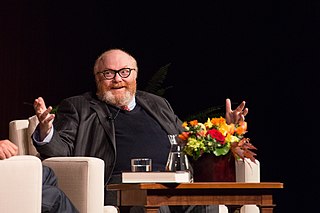A Quote by Karen Armstrong
I want to create a rapid response team, right around the world, perhaps starting originally with our partners, similar to the one we have in the United Nations whereby, where there's a problem in our society which demands a compassionate response, an educated, informed, not just a splurgy emotional thing, but an informed compassionate response that puts yourself in the position of the other and sees all sides of the problem, not just your own, there'll be somebody poised in each society who can write to the media, write an op-ed piece, to go on TV or radio.
Quote Topics
Around
Around The World
Compassionate
Create
Demands
Each
Educated
Emotional
Go
Informed
Just
Media
Nations
Op-Ed
Originally
Other
Our
Our Society
Own
Partners
Perhaps
Piece
Poised
Position
Problem
Puts
Radio
Rapid
Response
Right
Sees
Sides
Similar
Society
Somebody
Starting
Team
Thing
TV
United
United Nations
Want
Which
World
Write
Your
Yourself
Related Quotes
Your mind, in order to defend itself starts to give life to inanimate objects. When that happens it solves the problem of stimulus and response because literally if you're by yourself you lose the element of stimulus and response. Somebody asks a question, you give a response. So, when you lose the stimulus and response, what I connected to is that you actually create all the stimulus and response.
Writing is mysterious, and it's supposed to be...any path that gets you there is a good path in the end. But one true thing among all these paths is the need to tap a deep vein of connection between our own uncontrollable interior preoccupations and what we're most concerned about in the world around us. We write in response to that world; we write in response to what we read and learn; and in the end we write out of our deepest selves, the live, breathing, bleeding place where the picture forms, and where it all begins.
The only piece of advice I've ever given anybody is learn to write songs and write as many songs as you can. Because it's never gonna hurt, and when you run into that problem of, 'God, I don't know what I want to say,' or the opposite problem of, 'I know exactly what I want to say, but no one has written it,' then you can just go write it yourself.
God never gives up on us no matter how hard we try to get ourselves loose. God does not let go. That doesn't mean he controls everything we do. It doesn't mean he puts a bridle on us and leads us by the nose. He gives each one of us free will and common sense and a spirit that can communicate with his. When we go through afflictions, he allows us to choose our response. But no matter what our response may be, he sticks around to the bitter end.
Spoken forgiveness, no matter how heartfelt, works best when we do not demand the response we want. I mean that when we tell people we forgive them, we must leave them free to respond to our good news however they are inclined. If the response is not what we hoped for, we can go home and enjoy our own healing in private.
Someone who lies and someone who tells the truth are playing on opposite sides, so to speak, in the same game. Each responds to the facts as he understands them, although the response of the one is guided by the authority of the truth, while the response of the other defies that authority and refuses to meet its demands. The bullshitter ignores these demands altogether. He does not reject the authority of the truth, as the liar does, and oppose himself to it. He pays no attention to it at all. By virtue of this, bullshit is a greater enemy of the truth than lies are.






































